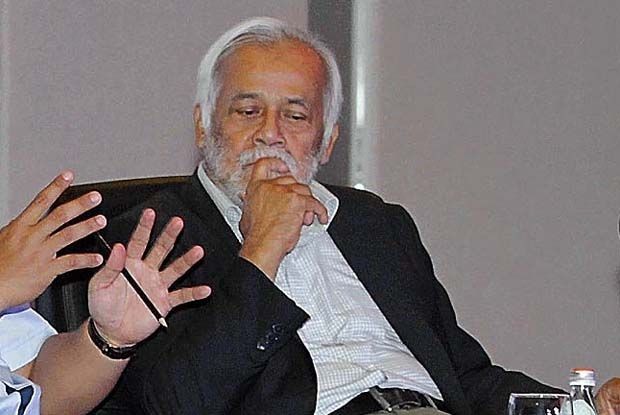
PETALING JAYA: Malaysia could see a full rebound in economic activities, including trade and investment, by the third quarter (Q3) of this year before strengthening further into 2021 once the movement control order (MCO) is lifted.
That is the projection of the Malaysian Institute of Economic Research (MIER) under a best-case scenario.
However, in its worst-case scenario analysis, the local think tank warned, production and trade in the country might not fully recover by the fourth quarter of 2020 and into the first quarter of 2021 due to the MCO impact.
The MCO, which began on March 18 to contain the spread of the novel coronavirus (Covid-19), is now in its third phase, which will end on April 28. The MCO has now been extended to May 12.
In its National Economic Outlook 2020-21 report, MIER chairman Tan Sri Dr Kamal Salih said under the best-case scenario, Malaysia’s real gross domestic product (GDP) in 2020 would likely grow by 3.8% relative to 2019.
In contrast, under the worst-case scenario, real GDP is projected to contract by 1%.
“For both scenarios, the PRIHATIN stimulus is likely to cushion the decline in GDP by as much as RM50bil or 3.6% of projected best-case scenario GDP in 2020, ” Kamal said.
“Under the best-case scenario, the PRIHATIN package and near-full recovery is expected to prevent job losses markedly by 1.05 million (from 1.08 million to 28,600 workers). For worst-case scenario, job losses is projected to decline from 2.41 million to 1.46 million (or 955,266 jobs being protected), ” he pointed out.
On the outlook for GDP in 2021, MIER projected a growth of 5.2% under the best-case scenario and 4.3% in the worst-case scenario.
Commenting on the MCO, Kamal said the longer the containment policy, the deeper the recession would be for Malaysia in 2020.
“We had previously estimated that any extension of MCO by two weeks from April 14 could lead to economic contraction by 2% of GDP growth, ” he said.
“On the other hand, a premature economic opening (without the strictest of containment protocols), may lead to the risk of reinfectivity. This is not an easy trade-off for the government, ” he added.
As for the volatile oil prices, MIER said its analysis assumed that world oil price would be around US$35 per barrel for the second half of 2020 and remain there for the whole of 2021.
If per-barrel oil prices fell to between US$20 and US$30, there would be a drop of GDP growth rate from the baseline by as much as 1%.
“The fall in world oil price alone may result in government revenue loss by RM11bil and consequently private and public consumption fall by as much as RM55bil, ” Kamal explained.
Meanwhile, Bernama reported that MIER said the decision to lift the MCO, which is currently on its third phase, must be carefully made and directly communicated to the public.
MIER Health Financing Group member Kahlil Anwar said the decision should be based on scientific data.
“The thing about epidemics is that you cannot predict what happens next; there may suddenly be a new cluster that has not been anticipated.
“The government needs to take a proactive approach by looking at the long term and the immediate requirement of getting certain businesses back into the public domain, as well as protecting vulnerable communities, ” he told an online press conference on the MIER National Economic Outlook 2020/2021 Report.
Kahlil said that during the first phase of the MCO, the daily increase in new cases was at 10.7%, and it declined to 4.31% during the second phase and subsequently fell further to the current 1.31%.
On the Covid-19 trajectory, Kamal said if the current plateauing of new cases is maintained until April 28, it could presage the beginning of the flattening of the curve, signalling positive results from the MCO lockdown strategy.
He said the longer the containment policy (lockdown) is maintained by the government, the deeper the recession would be this year.
“We had previously estimated that any extension of the MCO by two weeks from April 14 could lead to an economic contraction of 2% of the gross domestic product (GDP) growth.
“On the other hand, a premature economic opening (without the strictest of containment protocols), may lead to reinfection risks. This is not an easy trade-off for the government, ” he said.
Meanwhile, MIER projected that the third phase of the MCO would be gradually lifted after it ends on April 28, albeit with strict measures such as the six requirements stipulated by World Health Organisation.
It added that the gradual economic reopening over the next six months would cushion the recessionary impact expected for this year.
Source : https://www.thestar.com.my/business/business-news/2020/04/24/full-economic-rebound-likely-in-third-quarter

